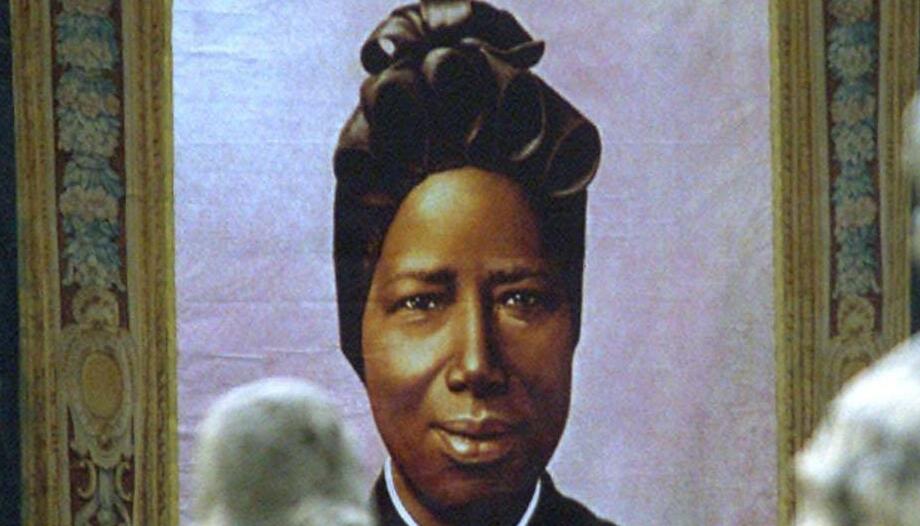Born in Darfur, Sudan, in 1869, she was abducted by slave traders when she was still a child and sold in African markets, cruelly mistreated as a child, and then sold in African markets. slave. Bakhita, whose name means Fortunate, was freed by an Italian merchant, and through a married couple who were friends of his, already in Italy, she met Jesus, was baptized and professed as a Canossian nun for 51 years. The inhabitants of Schio, where she lived and died, discovered in their "little mother morenita" a great inner strength, based on prayer and charity.
In its Message for the XI World Day of Prayer and Reflection against Hunger and Poverty Human TraffickingPope Francis, who also dedicated to him a special message of thanksgiving, which takes place today, Pope Francis, who also dedicated to him a catechesis in 2023, he wrote: "Together - trusting in the intercession of St. Bakhita - we will succeed in making a great effort and creating the conditions so that trafficking and exploitation be outlawed and that respect for fundamental human rights always prevail, in the fraternal recognition of our common humanity".
Saint Bakhita pardoned to the traffickers, and forgiveness set her free, Pope Francis wrote. Thanks to the message of reconciliation and mercy Josephine Bakhita was beatified and named "Universal Sister" by St. John Paul II in 1992. In the ceremony St. Josemaría Escrivá was also beatified. St. Josephine Bakhita was canonized by St. John Paul II in October 2000. The Italian director Giacomo Campiotti directed the film Bakhita.











